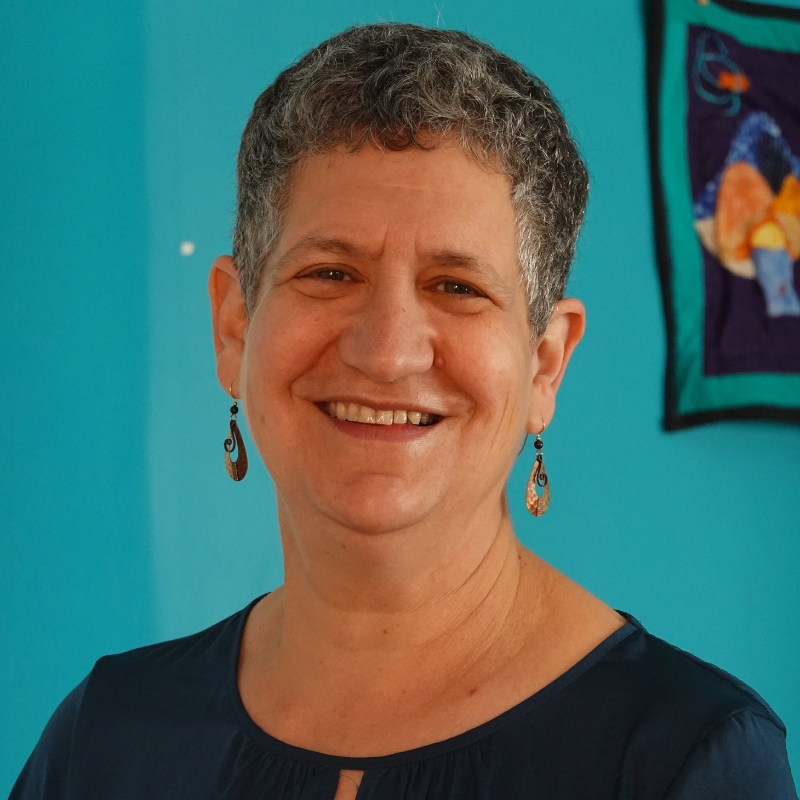I know many Jews, both laypeople and clergy, who are approaching the Passover holiday this year with trepidation. Portions of the seder that in most years we recite by rote — “let all who are hungry come and eat”; “once we were slaves, now we are free people” — feel off and painful in this historical moment. How can we celebrate freedom, when so many Israeli hostages are still held by Hamas? How can we invite all who are hungry to our table, when the people of Gaza are experiencing an unprecedented, human-caused famine at the hand of the Israeli government? How do we, seated here in North America, gaze from afar upon the unspeakable pain and trauma being felt in Israel/Palestine and celebrate anything at all?
Perhaps this is the time to remember the original Pesach of the Torah. Exodus chapter 12 describes a set of rituals that bear little resemblance to our Greco-Roman symposium-inspired Passover feast. It began with a ritual sacrifice at twilight and the smearing of a lamb’s blood upon the doorposts of one’s home. It continued in the middle of the night with a meal hastily eaten, those around the table clothed for the journey, traveling stick in hand. It was, presumably, a terrifying night, as the Israelites waited to see if the angel of death would indeed “pass over” their homes, and as they heard the wails and cries of bereft Egyptian families across the way, mourning the deaths of their firstborn.
As I learned from a friend’s insight many years ago, there was another reason for trepidation by the Israelites. Those who were ready to be liberated from slavery had marked their doors with blood. If the promise relayed to them by Moses came true, then their enemies would be struck down and they would go free. But what if that didn’t happen? What if the night passed like any other night, and in the morning, every rebellious slave’s house was marked as a site of resistance? What would happen to them then?
Find more resources on Israel/Palestine.
In its early conception, the night of the great liberation was also a night of fear and trepidation. Rabbinic tradition incorporates the complexity of this moment in the traditional fast of the firstborn on the day of the seder. Our freedom was earned at the price of the lives of the Egyptian firstborn, and we acknowledge this price with a symbolic act of self-denial.
And while the rabbinic seder that became the model for all of our contemporary seders expanded greatly upon the bare bones of the biblical ritual, the traditional Haggadah incorporates symbolic re-enactments of the emotional complexity of that original Pesach. We taste the salt of tears along with the greenness of spring. We take something very bitter and dip it into something sweet. We eat matzah, which manages to be both lechem oni — the “bread of affliction” — as well as the symbol of the Israelites’ liberatory flight from Egypt. We name all of the plagues that led to our freedom and acknowledge the pain suffered by our supposed enemies as we drip out a bit of wine for each one. We even make explicit — in the recitation of the Four Children — that not everyone sitting around the table has the same view of things, that some rebel against the story, and others wonder what it’s all about.
Find more resources for Pesach 2024.
My hope, as we enter into this holiday in an unprecedented time, is that we accept the seder’s invitation to metabolize complexity for the sake of freedom. We can acknowledge the atrocities enacted by Hamas and the Netanyahu government, and also celebrate the courage and resilience of those committed to building a different future in Israel/Palestine. We can make space for our grief and really taste those tears, even as we anticipate the possibility of renewal. We can eat an extra portion of maror, bitter herbs, in honor of all those who are suffering, even as we enjoy a meal with those we love.
And most importantly, we can take on our own “marking of the doorposts” for this moment. What am I prepared to do, or say, to help bring this cursed war to an end? How might I “mark” myself as someone committed to the collective liberation of Palestinians and Israelis? How can I extend my compassion to someone whose story of suffering — an Israeli story, a Palestinian story — I have difficulty hearing?
As we conclude our seders this year, let us commit ourselves to the truth that no one is free until all are free — and so we celebrate the steps we have taken, and know that much remains to be done.
Rabbi Toba Spitzer is the spiritual leader of Congregation Dorshei Tzedek in West Newton, MA, and serves as the co-chair of T’ruah’s Massachusetts cluster. She is a longtime activist for justice and peace in Israel/Palestine. This June T’ruah will honor her at the annual gala with a Rabbinic Human Rights Hero award. To purchase gala tickets or make a donation in Rabbi Spitzer’s honor, click here.

